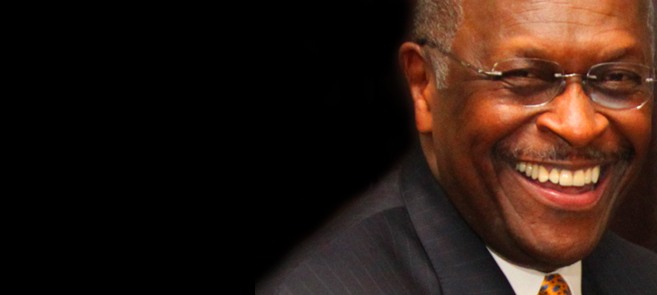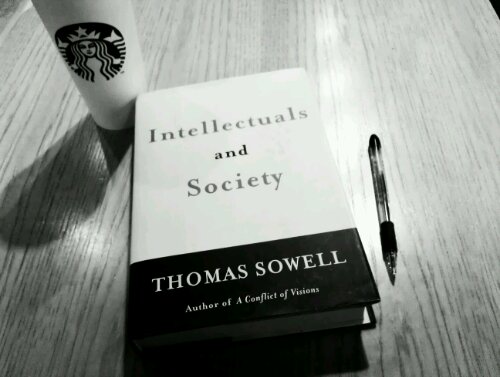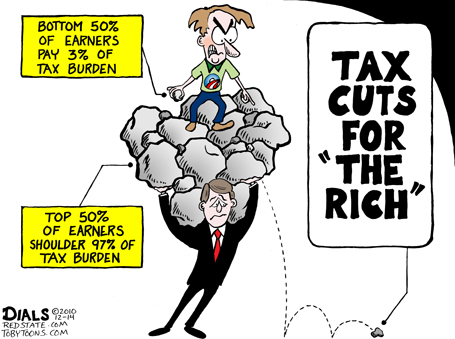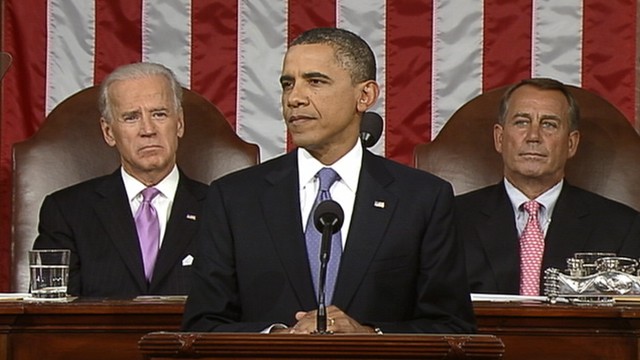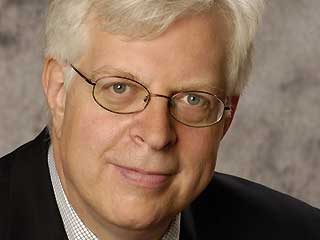FoxNews’ management of the first GOP debate was shameful. From the questions they asked to where they placed the contenders on the stage, everything was geared toward pitting the candidates against each other rather than inquiring what each candidate would do as president.
What I felt was missing was a candidate speaking up in a unifying tone to step above the fray, aside from the traps laid by the moderators and what communicated as petty fights between each other. A candidate to step up and say that all of the candidates would be better than a second term of President Obama, and that all the candidates were in favor of a lower tax burden, less federal regulation, etc. A candidate to speak that they respect the other people on stage, while they think their own distinctives make them better for the position.
Newt had the right tone with the Fox News’ moderators, telling them to stop asking “gotcha” questions, but no one stepped up to elevate all of the candidates.
Last night’s debate was worse as far as moderation. The moderators again pitted candidates against each other. Like Fox News, MSNBC focused on a few candidates where as others (most notably Herman Cain) were essentially ignored. The liberal bias was stronger. For example, Brian Williams asked Perry how he could sleep at night supporting the death penalty, and Williams pointed out that he taken aback that people applauded his mention of Texas executing murderers.
Governors Perry and Romney started with the bickering (and Huntsman tried to join the bickering) which was as unpresidential as when Bachmann and Pawlenty fell into that trap last time. Newt again had the right tone and this time emphasized that any of the candidates would be an improvement and all were united in the majority of policies. After his comment and the overwhelming applause, the level of discussion was raised up most notably by Perry and Romney.
Here’s the video of the entire debate followed by my take on how everyone did.

Michele Bachmann – She did not raise above the questions asked of her. When she was asked about whether the president could make gas $2/gallon she focused on the two-dollar price tag rather than talking about what the president can practically do to help energy prices. When asked about drilling in the everglades, she said that we would do it responsibly. A better case would be to say that Americans have proven we are more responsible with the environment but instead we’re paying countries in the middle east but we should bring the business to America to create jobs and have more control over the environmental impact of drilling.
The candidates should be using the questions as a platform to speak directly to the viewer for a few minutes rather than interacting with the moderator. Unfortunately, while her comments are accurate, “$2 gas” and “narco-terrorism” sound extreme and are sound byte fodder. Bachmann was my favored top-tier candidate before the first debate, but has failed to rise up and show presidential control over situations like this debate.
Herman Cain – Cain continues to speak with honesty and clarity, setting him apart from the majority of politicians. He advocated a 9-9-9 tax reform: 9% business flat tax, 9% individual flat tax, and 9% national sales “fair” tax. Combining the flat tax and fair tax is an innovative idea that keeps all the numbers low. Can they really be single-digit rates? I don’t know. Would it stay at 9%? That’s unlikely as politicians always want more money, so it would need to be more difficult to change the tax rates.
I’ve always liked Cain, but his ignorance on foreign policy early in his campaign was refreshingly honest, but not helpful. New contenders entering the race continue to push him lower in the polls, and he has been very good but not stellar enough to rise above.
Ron Paul – Paul again spent some of his allotted time whining about how he wasn’t asked every question. It may not be fair, but whining is a bad cornerstone for a presidential platform. He was a bit conspiratorial, arguing that a border fence would be used to keep American citizens from traveling abroad. Overall Paul looked angry and condescending toward the other candidates, the moderators, and even the audience. He attacked Perry for a positive letter Perry sent to Hillary Clinton before the details HillaryCare were known, at which point Perry pointed out Paul’s letter to Reagan saying he was leaving the Republican party because of him.
Ron Paul’s economic and conservative ideas are great. Unfortunately his let-the-dictators-win and conspiracy views weren’t helping. One of the greatest factors against Paul is the non-thinking aura exuding from his devotees.
Rick “Swagger” Perry – As the newest contender, Perry seemed very comfortable on stage and controlled his own time well. He speaks with more clarity than most politicians, which I respect. He gave Obama credit for ordering the Osama take-out while also calling him a Keynesian. He effectively touted how Texas has created jobs and reduced greenhouse gases.
Mitt Romney – Mitt was better than the first debate where he avoided answering anything specific. He was still very professionally political: vague and non-committal. He advocated things like loving America, creating jobs, changing how we’re economically structured, etc.
Jon “Eyebrows” Huntsman – Huntsman continues to come across as snooty and condescending. He looks great when he smiles, an image which occupied about 2.5 seconds of his time. I was constantly distracted by his eyebrow movements. He declared that evolution and global warming are sciences that are never to be questioned – whether the public-school promoted ideas on these issues are accurate or not, it is the exalting of these things to unquestionable gospel that is most off-putting.
Rick “Grumpy” Santorum – Perhaps he looked like he was constantly scowling because of the lights, or maybe because he was upset that he allowed his campaign manager to put him in a pink tie. His body language was very grump. While he didn’t shoot himself in the foot, Santorum didn’t stand out positively either.
Newt Gingrich – Newt consistently rose above the fray and had the most authoritative presidential tone. He answered questions quickly and announced how he would use the remainder of his time, which he did concisely and professionally. He was far and away the most presidential of the candidates and wasn’t pushed around by the moderators.
Unfortunately, Newt has a number of factors against him from his history of broken marriages to his apparent age and and earlier near-collapse of his campaign staff.
While it may not realistic, this debate left me hoping for a ticket combining two names from: Gingrich, Perry, Cain.

